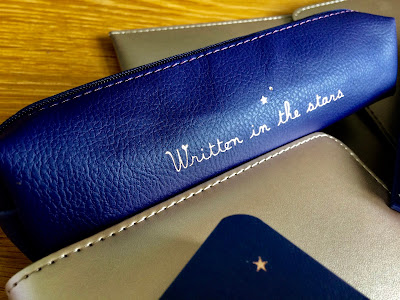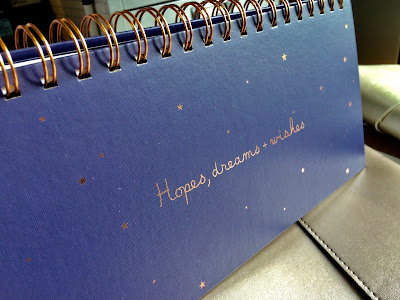... the vexed issue of whether to throw away old letters.
You have been very patient, bearing with me over my dilemma of what to do about the piles of old letters I have hoarded over 40 years and deserve a break. But before I pen my final full stop on the matter , I found this on the internet last night , written by Jane Shilling in 2014, who now writes for The Telegraph but back then wrote for the Daily Mail Online ( well we've all gotta eat ) .
It is the most acutely and minutely well-observed piece of writing on this issue that I have read and trust me I have been reading everything I could lay my hands on, about this topic, in the last few weeks. It could have been me talking, but far better articulated. No co-incidence that we are exactly the same age.
Why I just can't bear to throw old letters away, even the ones that are far too painful to read...memories are too precious
BY JANE SHILLING FOR MAILONLINE 14/08/2010
• Jane says it is strange to think how she communicated by letter as a student
• From the fragments of writing, a long-buried image emerged of the person she was - and Jane says she 'didn't like her at all'
• It's predicted such letters will soon cease to exist. But Jane is not convinced
Decluttering, we are often told, is good for you. Getting rid of your superfluous stuff doesn’t just leave you with empty cupboards, it’s a way of purifying your life. A fresh start.
Over the past couple of years, since my son went to university, I have been gradually clearing out the detritus of several decades.
At first it was easy but now I’m left with the tough stuff: baby clothes, childhood paintings and — hardest of all — old letters, which seem to demand a more dignified end than the recycling bin.
A recent survey for the Royal Mail claims that the art of letter-writing is in terminal decline, replaced by email and social networking. So it is a sign of my age — I’m 54 — that having resolved to eradicate the bit of my past that my letters represent, I’m obliged to dispose of a physical archive.
My 20-year-old son, whose correspondence is vast, but entirely electronic, could delete the lot at the press of a couple of keys. It is strange to think that when I was a student, the only way my friends and I could make contact was by letter.
There were no mobile phones in the 1970s, no email, no Facebook. So we used to write constantly: an endless stream of notes, all of which I seem, inexplicably, to have hoarded.
When I decided to throw out my letters, I thought I had better look through them first. I hadn’t realised that reading old letters is like time travelling — a journey over terrain that seems deceptively familiar but turns out to be stranger than you remembered, and more hazardous.
Plaintive notes from would-be suitors — ‘Where ARE you?’ — were all muddled up with brave, funny letters from my grandma, postcards from my tutors enquiring after undelivered essays, long letters from friends suffering agonies of boredom during the interminable university vacations, and reams of juvenile poetry.
Sifting through this pile of soon-to-be waste paper, I began, fatally, to read. And from the fragments of writing, a long-buried image began to emerge of the person I used to be. And I didn’t like her at all.
This earlier me seemed selfish (all those missed appointments with friends who had made the long, dull journey to my distant college room), lazy (all those unwritten essays) and unkind.
The love letters made particularly painful reading. The youthful me didn’t strike me as someone who deserved the tenderness and affection that those letters expressed.
Looking back from a distance of 30-odd years, I know that my younger self was about to become very lonely and unhappy for quite a long time, and I’m afraid it served her right.
Between the painful letters of my early 20s and the next batch there is a gap, during which the serious business of living took over.
My friends and I survived the hectic period in our 30s while we were juggling work and children with our friendships intact. But for a while there was no time for letter-writing.
We were like fogbound ships, hoisting desperate signals, ‘I AM STILL HERE — ARE YOU?’, and hoping that we’d still be in contact when the cloud of busy-ness and exhaustion lifted. When it did, something had changed. I had become a writer, and I began to get letters from strangers in response to things I had written. When the letters were kind and interesting, it seemed only polite to reply. By degrees I accumulated half-a-dozen regular correspondents — people I’d never met but who felt like friends.
And then there was email: the perfect hybrid of conversation and letters. It has been predicted that personal letters will soon no longer exist — killed by email and texts as surely as horse-drawn carriages were superseded by the internal combustion engine. But I am not convinced. We may think ourselves more emotionally spontaneous than our letter-writing forebears, but human nature has changed surprisingly little across the centuries.
‘My dear Cassandra,’ wrote the novelist Jane Austen to her sister on Saturday March 5, 1814. ‘Do not be angry with me for beginning another Letter to you. I have read [Byron’s poem] the Corsair, mended my petticoat and have nothing else to do…’
To me, that line seems as fresh as though it were written two minutes ago, rather than two centuries. Like the correspondents of 200 years ago, we still crave scandal, reassurance, tenderness, news. Jane Austen’s letters, with their excited updates on the latest fashions and their savage comments about her neighbour’s killer bad breath, may be written in ink on paper, but they are the emails of their time.
What you don’t get from email is the satisfying physicality of a letter. Not many people of my son’s age, I imagine, will ever experience the clutch of the heart caused by the sight of an envelope addressed in a longed-for handwriting; nor find themselves unexpectedly reduced to tears when an ancient love letter falls out of a long-unread book that they have idly taken down from the bookshelf. You can’t fall asleep holding an email. Or mark your place in a book with it. You could print it out, I suppose, but that isn’t quite the same.
Today’s 20-year-olds won’t miss what they never knew, but I notice that I still revert to pen and paper when it comes to serious stuff like love and death. When I look through my old letters, I have no idea what I wrote that produced those replies of exasperation, tenderness, amusement or despair — and I find it disturbing.
I can destroy my half of the correspondence, but I can’t make the whole thing vanish. If any of my correspondents has kept my letters, that version of me is out there on the loose, capering mockingly beyond my power to control her.
As for my electronic archive, I could wipe my hard disk and hurl my computer into the Thames (as once I planned to drown the letters of a faithless lover), but it wouldn’t make any difference. Each of my email correspondents has the full record of our exchanges, and I can’t take a word of them back. It is a thought that should make me resolve to give up correspondence. But somehow it does not.
When you write letters, whether by email or on paper, you write, without knowing it, your life story, and one rarely emerges well from the account. But it is the human condition to be ridiculous, and I may as well embrace it.
I confess, too, that I may even be having second thoughts about throwing out my correspondence. While re-reading my 30-year-old letters was upsetting, it made me think about friendship. Most of those notes are from people I still know and love (though who on earth was John, who wrote such fervent letters in the Trinity term of 1977?).
The two people I loved best — my grandmother and an old university friend — are dead, and now that I’ve seen their handwriting again, I’m not sure I can bear to throw their letters away. But if I save those, what about the beautiful letter I had from a military historian, saying that my first book made him cry? Or the generous note from a fellow writer, praising my second book? I was so proud to get those letters. Are they really going out with the rubbish? Cupboard space is precious in a house as small as mine. But so are memories. And just at the moment, I can’t decide which I need more.




















